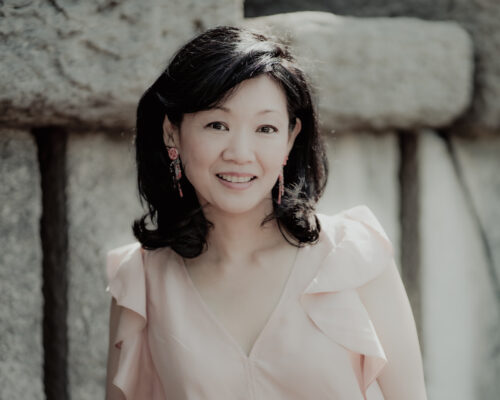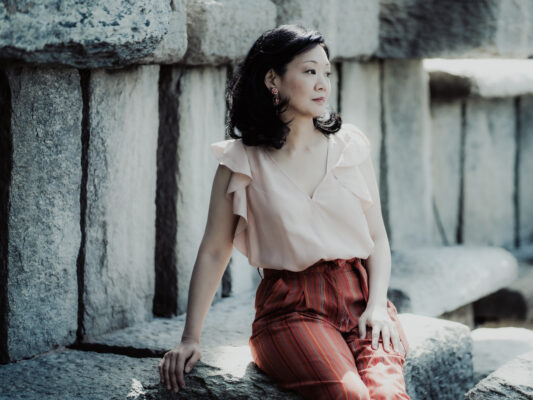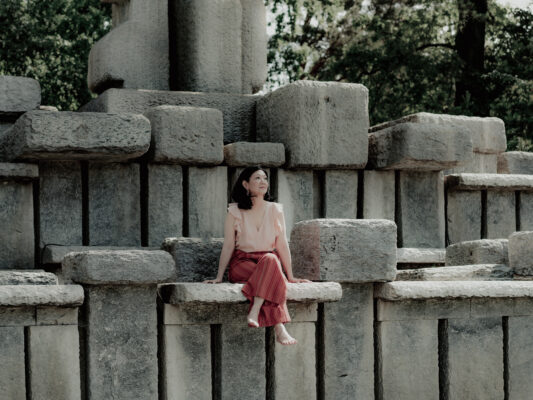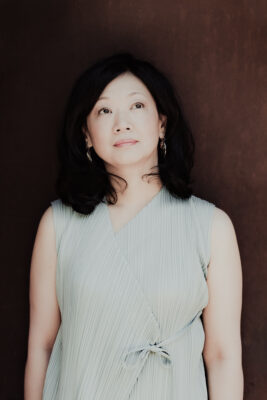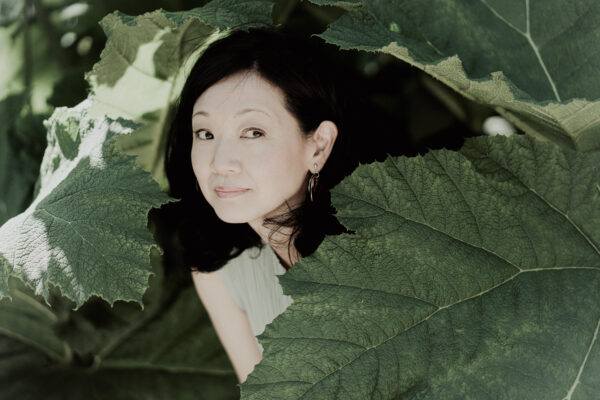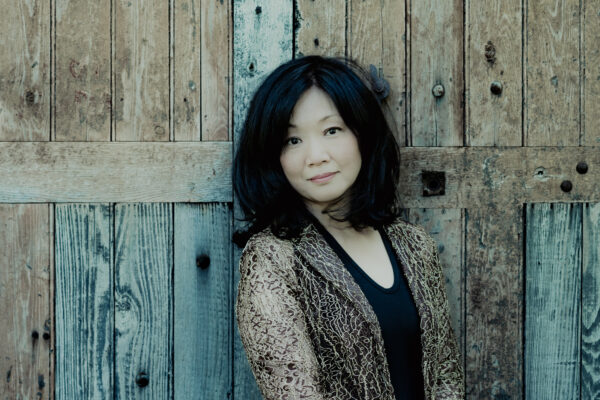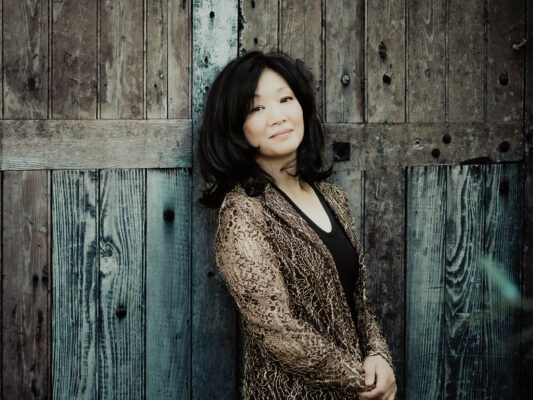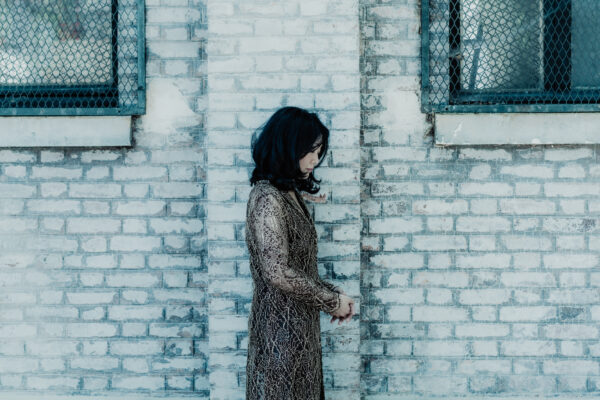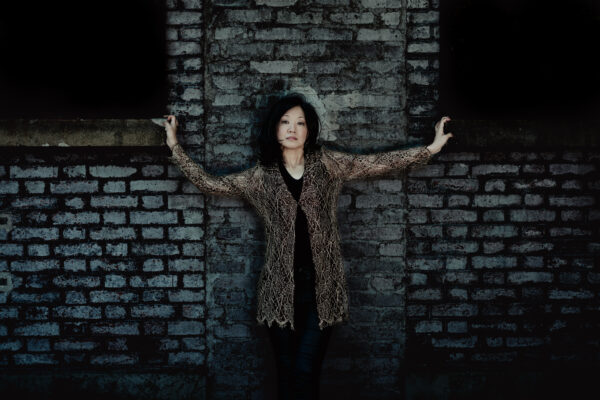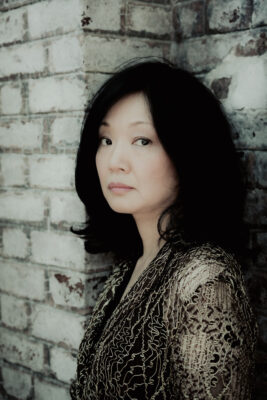Momo Kodama
PianoPraised for her “impeccable technique and facility for crystalline sounds” (American Record Guide), “her natural ease and keen sense for drama” (BBC Music Magazine), “deliciously pearly touch” (Classical-Music) and “crisp, pointed and sensuous playing” (San Francisco Chronicle) Momo Kodama has built up an impressive career with performances with world-renowned orchestras such as the Berlin Philharmonic Orchestra, Boston Symphony Orchestra, Bayerisches Staatsorchester, NHK Symphony Orchestra, NDR Elbphilharmonie Orchestra, Orchestre National de France, Orchestre Philharmonique de Radio France, Orchestre Philharmonique de Monte-Carlo, Orchestre de Chambre de Paris and the Royal Liverpool Philharmonic Orchestra, under the baton of Seiji Ozawa, Eliahu Inbal, Charles Dutoit, Kent Nagano, Roger Norrington, Lawrence Foster and André Previn. She has appeared at the Vienna Musikverein, Berlin Philharmonie, Berlin Konzerthaus, Suntory Hall Tokyo, Philharmonie de Paris, Théâtre des Champs-Elysées in Paris, Muziekgebouw aan ’t IJ in Amsterdam and the Wigmore Hall in London.
Read morePraised for her “impeccable technique and facility for crystalline sounds” (American Record Guide), “her natural ease and keen sense for drama” (BBC Music Magazine), “deliciously pearly touch” (Classical-Music) and “crisp, pointed and sensuous playing” (San Francisco Chronicle) Momo Kodama has built up an impressive career with performances with world-renowned orchestras such as the Berlin Philharmonic Orchestra, Boston Symphony Orchestra, Bayerisches Staatsorchester, NHK Symphony Orchestra, NDR Elbphilharmonie Orchestra, Orchestre National de France, Orchestre Philharmonique de Radio France, Orchestre Philharmonique de Monte-Carlo, Orchestre de Chambre de Paris and the Royal Liverpool Philharmonic Orchestra, under the baton of Seiji Ozawa, Eliahu Inbal, Charles Dutoit, Kent Nagano, Roger Norrington, Lawrence Foster and André Previn. She has appeared at the Vienna Musikverein, Berlin Philharmonie, Berlin Konzerthaus, Suntory Hall Tokyo, Philharmonie de Paris, Théâtre des Champs-Elysées in Paris, Muziekgebouw aan ’t IJ in Amsterdam, the Wigmore Hall in London and the Salle Bourgie in Montréal.
She is a regular guests at festivals including Marlboro, Verbier, La Roque d’Anthéron, Festival Chopin, Festival d’Automne, Festival Saint-Denis, Enesco Festival, Tivoli Festival, Settembre Musica, Schleswig-Holstein, Miyazaki and Matsumoto (Seiji Ozawa).
Momo Kodama enjoys making chamber music with partners including Christian Tetzlaff, Renaud Capuçon, Augustin Dumay, Gautier Capuçon, Steven Isserlis and Jörg Widmann. She also devised and performed a programme for the 100th anniversary of Debussy’s death, with actor Pascal Rénéric and bariton Josep-Ramon Olivé at La Bellevilloise in Paris with further repeats in France and China.
Recent highlights include a return visit to the Orchestre Philharmonique de Monte-Carlo and Kazuki Yamada to perform the seldomly played Fantasies of Debussy and Fauré, and, together with her sister Mari Kodama, her debut with the Orchestre de la Suisse Romande and Kent Nagano, as well as with the Philharmonisches Orchester Bremerhaven and Marc Niemann. In Japan she plays the Turangalila Symphony with the Gumma Symphony and both concertos of Ravel in one evening with the Aichi Chamber Orchestra. She also returned to the Muziekgebouw aan ’t IJ in Amsterdam with Mari Kodama and gave solo recitals in various cities in Europe and Japan, including a Messiaen Project 2022 in Tokyo to commemorate the 30th anniversary of his death, for which she received the “Technology’s Art Encouragement Prize” in the music category by the Minister of Education, Culture, Sports and Science in Japan.
Her repertoire ranges from the classical and romantic periods to contemporary works. Composers such as Toshio Hosokawa, Jörg Widmann and Christian Mason have written especially for her. Momo Kodama is regarded as a highly distinguished interpreter of Olivier Messiaen’s oeuvre (among which the Turangalîla-Symphonie, the Vingt Regards sur l’enfant-Jésus, the Catalogue d’Oiseaux), and premiered his Fantaisie for Violin and Piano with Isabelle Faust in 2006.
Her latest recording for ECM, released in spring 2021, features concertos by Mozart and Toshio Hosokawa, with the Mito Chamber Orchestra conducted by Seiji Ozawa. Prior to this, her CD “La vallée des cloches” and “Point and Line – Hosokawa/Debussy Etudes” also released by ECM, received outstanding reviews from the New York Times, BBC Music Magazine (recording of the month), Classica (“Choc”), Neue Zürcher Zeitung, In addition, Momo Kodama has recorded two CD’s for Pentatone together with her pianist sister Mari with works by Tchaikovsky and Martinů, as well as four CD’s for Triton with works by Chopin, Debussy and Messiaen.
On 1 October 2022 Momo Kodama was appointed professor at the Hochschule für Musik in Karlsruhe.
Born in Osaka in Japan, Momo Kodama spent her early years in Europe: educated at a German school, she attended the Conservatoire National Superieur de Musique de Paris. She continued her studies under Murray Perahia, András Schiff, Vera Gornostaeva and Tatiana Nikolayeva. In 1991, she became the youngest laureate of the ARD International Music Competition in Munich.
Momo Kodama is based in Paris. In her spare time she enjoys cooking, especially for and with friends and family.
